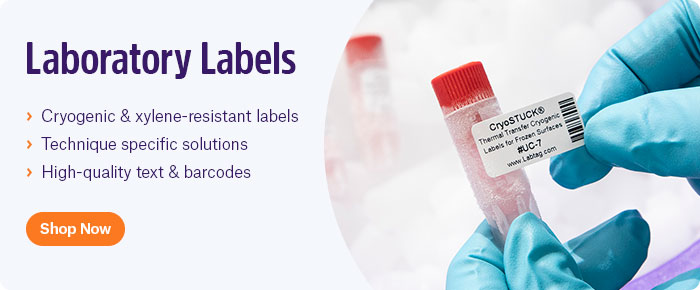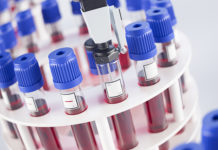
A healthy work-life balance is one of the hardest feats to achieve in science. It might seem like a difficult task to make time for oneself in the midst of a busy work schedule, but it is a necessary step toward enhancing one’s productivity and overall health. Here are several tips1 to help manage a career as a scientist with life outside the lab, ensuring an equitable balance between the two.
Don’t overwork yourself
More hours spent in the lab don’t necessarily yield higher productivity. Though there is constant pressure to work long hours in science, especially in academia, this does not necessarily translate to more or better results. The first thing to consider is resources and timing, as new tasks often rely on obtaining results from the previous ones. For instance, one might require optimizing concentrations of a reagent before running a full assay; in this case, working to run the optimization and full assay in a single day is likely not feasible. Instead, continually working overtime is more likely to lead to fatigue, stress, lack of sleep, and ultimately, sickness. When fatigued, it is more likely that errors can occur, which will require even more time to remedy.
Find ways to become more efficient
Instead of feeling guilty for not working overtime, concentrate on finding new ways to make your work more efficient. There are many ways to do so, including keeping the lab organized and integrating optimized software to manage workflows, such as an electronic laboratory notebook (ELN) or a laboratory information management system (LIMS). These systems are designed to make workflows easier through advanced tracking and tracing of samples and inventory (using barcode and/or RFID labels) and to enhance visibility among all lab members. They can also be used to plan out future work, including booking equipment.
Set boundaries
Maintaining focus throughout the day is another way to help stay efficient and productive. Setting boundaries with all lab members regarding wet lab hours and computer time will help keep you focused on your tasks without unnecessary distractions. At home, it is essential to set boundaries as well, cordoning off a well-designed space to work outside of the other areas of the house that can act as distractions.
Prioritize
Sometimes, it can seem like there is an insurmountable number of tasks to perform in a day. To avoid being overworked, it helps to make a list and prioritize each task in descending order of importance. This will not only help with current tasks, but it can also allow you to visualize your schedule and decide which new tasks you can take on. Make sure that new tasks align with your goals, as additional training may not always be beneficial if it does not serve a short- or long-term purpose to your career.
Keep a healthy lifestyle
In order to maintain high efficiency and productivity, it is essential to keep healthy and avoid the pitfalls that lead to exhaustion. That means keeping a healthy diet, sleeping well, and exercising regularly. While working in a wet lab can often mean standing and walking around for many hours, it’s still worth setting aside time for a relaxing walk and ensuring you have ample time to eat proper meals throughout the day.
Find time for friends and family
When intensely focused on work, social activity often gets ignored, to the detriment of personal relationships. Always find time throughout the week to socialize with friends and family, whether through text messages, calling them, or going to the movies. Socializing is an integral part of mental health and should never be discarded entirely in favor of obtaining more lab results. Socializing can even help enhance teamwork in the lab through the use of lab outings for meals and other events.
Stick to a hobby or pastime
Having a hobby or pastime isn’t only beneficial to help take your mind off work and reduce anxiety and stress; it can also help develop new skills and talents, some of which may be useful in the lab. Visual arts like painting and drawing are especially relevant hobbies, as they promote creativity and can strengthen hand-eye coordination.
The issue of parenthood
One of the toughest issues for work-life balance as a scientist with parenthood. Motherhood can be particularly taxing, with sleep deprivation, fatigue, and stress all taking a toll over the course of several years. Life becomes decidedly unpredictable as well, as parenting can require dropping all tasks immediately for the day in order to care for their children. The timing of parenthood also plays a role in future academic success, as most scientists take their leave as graduate students or post-docs because they do not want to wait too long before having kids. This can pose a problem, as the timing of funding is often limited, resulting in the parent missing time that would typically be allocated to helping publish papers.2
One author, Akiko Iwasaki, notes that becoming a parent in science requires a higher level of task prioritization and an adjustment of work habits, going so far as to post a “priority plot” of tasks, distinguished into work-related and family-related categories to help her manage.3 Others have advocated for institutions to be more forgiving and hospitable towards new parents, with some countries, such as the US, providing little to no maternity or paternity leave. More cost-effective options that have been suggested include providing flexible work schedules and spaces for lactation.2,3
LabTAG by GA International is a leading manufacturer of high-performance specialty labels and a supplier of identification solutions used in research and medical labs as well as healthcare institutions.
References:
- Bartlett MJ, et al. Ten simple rules to improve academic work–life balance. PLoS Comput Biol. 2021;17(7):e1009124.
- Kuehn BM. Looking for the best of both worlds. 2018;7:e36366.
- Iwasaki A. Balancing family life with a science career. Nat Immunol. 2015;16(8):787-790.



